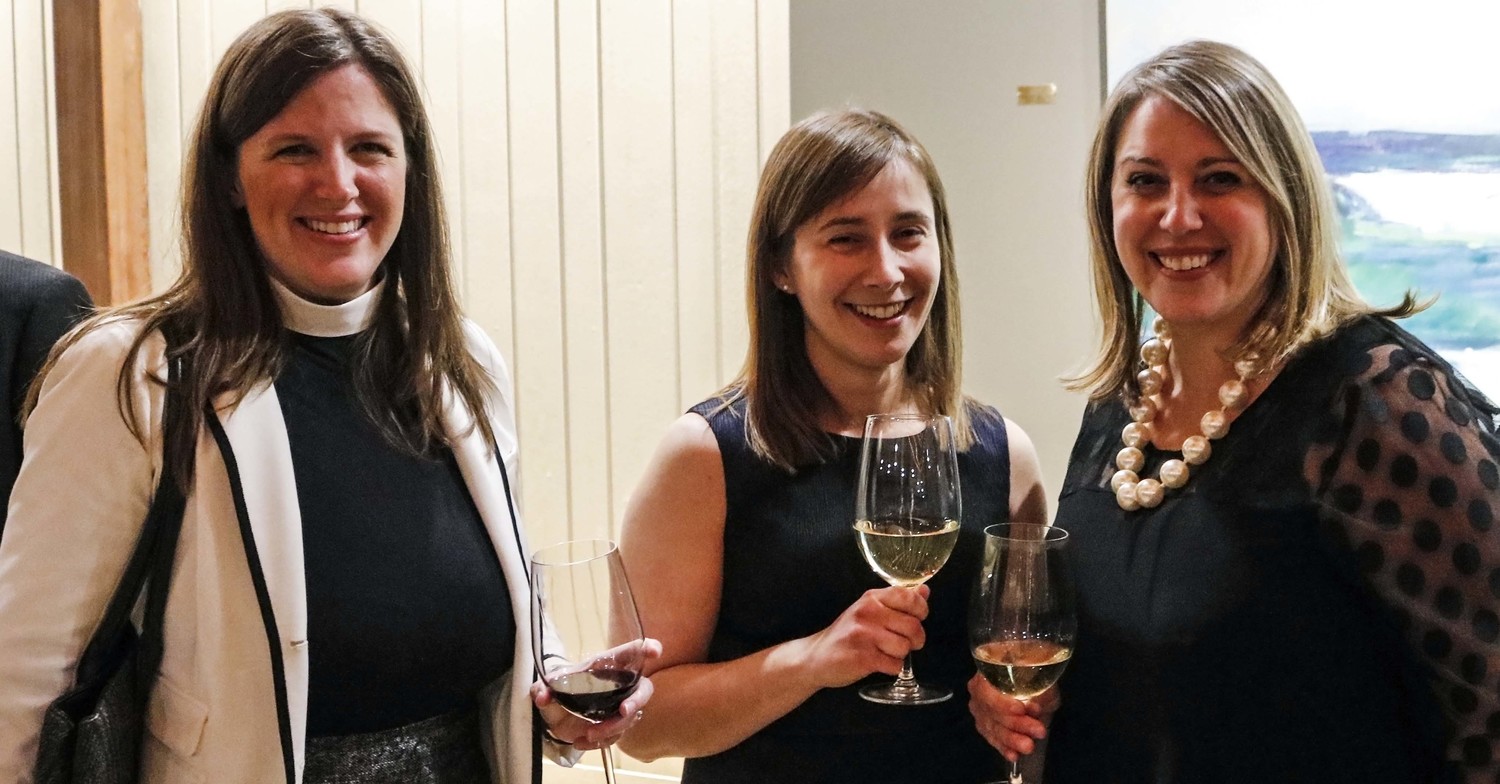Supporters of the Dioceses of Edmonton and the Arctic (District of Mackenzie) gathered at the Royal Mayfair Golf Club in Edmonton, November 14, 2018, for the 67th Annual Bishop’s Fund Dinner.
In keeping with tradition, piper Kevin Thompson led the procession of Bishop’s Fund Committee members into the banquet. Chair Neil Gower, QC, introduced the members of the committee, which pays for all costs associated with the meal.
The Bishop’s Fund, an association of Anglican lay persons, clergy and friends, supports clergy in need of medical or family assistance; continued education and training; and support for ministry which extends beyond the annual diocesan budget. Gower welcomed the Rt. Rev. Dr. Jane Alexander, Bishop of Edmonton, and the Rt. Rev. David Parsons, Bishop of the Arctic, as well as more than 85 dinner guests. He invited a moment of remembrance of supporters of the Bishop’s Fund who are deceased.
Bishop Jane expressed her heartfelt gratitude on behalf of the clergy and their families of the Dioceses of Edmonton and the western Arctic.
“On behalf of both Bishop David and myself, thank you very, very much,” she said. “All of you are saints of this age because it’s your tireless support of the work of the church that makes such a difference in people’s lives. When clergy call in distress or need, I’m grateful that we can provide extra counselling, medical services, and pastoral care during bereavement.”
It is no surprise that people in the 24/7 ministry vocation are sometimes better at taking care of others than they are of themselves, said Bishop Jane. “When that moment comes when they do ask for help, you (supporters of the Bishop’s Fund) enable me to say, ‘yes, we can take care of that.’ The fund has enabled clergy to remain focused on ministry when the worries of life threatened to consume them."
“When God calls people, lay or ordained, to ministry, He never calls them alone,” she said. "It’s always in community. You are a vital part of that community.”
It has not been often that a representative from the Diocese of the Arctic has been able to attend the annual fundraising dinner. Bishop David Parsons was visiting Edmonton from Yellowknife for meetings, including a gathering at St. Paul’s Anglican Church, and gladly accepted Bishop Jane’s invitation.
“Thank you for the invitation. I’m honoured to be here,” he said. “The Edmonton diocese has always been our friend. It is such encouragement and a blessing to receive your prayers and financial support.”
Over the past six decades, the Bishop’s Fund Committee has invited visionary leaders to share insight, knowledge and experience from their respective professional vocations. This year, the dinner was pleased to welcome Dr. Kim Sturgess, founder and CEO of Alberta WaterSMART, a service organization committed to improving water management through better technologies and practices. As Bishop’s Fund Committee Member Marc de la Bruyère noted in his introduction, Sturgess, a member of the Order of Canada, has dedicated her life’s work to caring wisely for God’s creation.
“It is fair to say that Kim has an unrivalled passion for nature and, especially, for water,” said de la Bruyère. “A professional engineer, she is a key driver behind projects and policies supporting innovative approaches to sustainable use and distribution of water across the province, nationally and globally.”
“Water needs are very diverse, competitive, personal and emotional,” said Sturgess who, for the last 28 years during the summer months, has camped along the Athabasca River, just upstream of Jasper. Many emotionally-charged discussions that have taken place around flood and drought mitigation.
“Water management is actually about people and how you work with people: think globally, plan regionally and act locally.”
Canadians must adapt to climate change and extreme weather events which have a very significant and direct impact on water resources, she said.
“For us, the bigger issue is not, do we have enough water? It is do we have enough water to grow the food we need?”
Sturgess said people are often surprised to learn that, as the world population climbs to 1 billion people by 2025 (projected to be 9-10 billion people by 2050) the greatest demand for water is in food production, which accounts for 70 per cent of the world's fresh water use.
Furthermore, “the largest contributor to increased agricultural input is going to come from intensification of production on existing agricultural land – the ability to make more food from existing land,” she said.
Of the five bread baskets of the world, Canada is the only one that is going to be able to produce more food by 2050, in part because of a warmer climate and a longer growing season, she said, adding that Canadians have an obligation to contribute to global food security by feeding the world. According to the United Nations, one in nine people worldwide suffer from chronic undernourishment.
“I personally think that’s what the world wants us to do with our water and our land,” she said.
Sturgess donated her $500 speaking honorarium to the nonprofit Alberta WaterPortal Society.
To become a member of the Bishop’s Fund by making a donation in support of clergy and their families, please contact Diocese of Edmonton Treasurer the Rev. John Gee: treasurer@edmonton.anglican.ca .





































